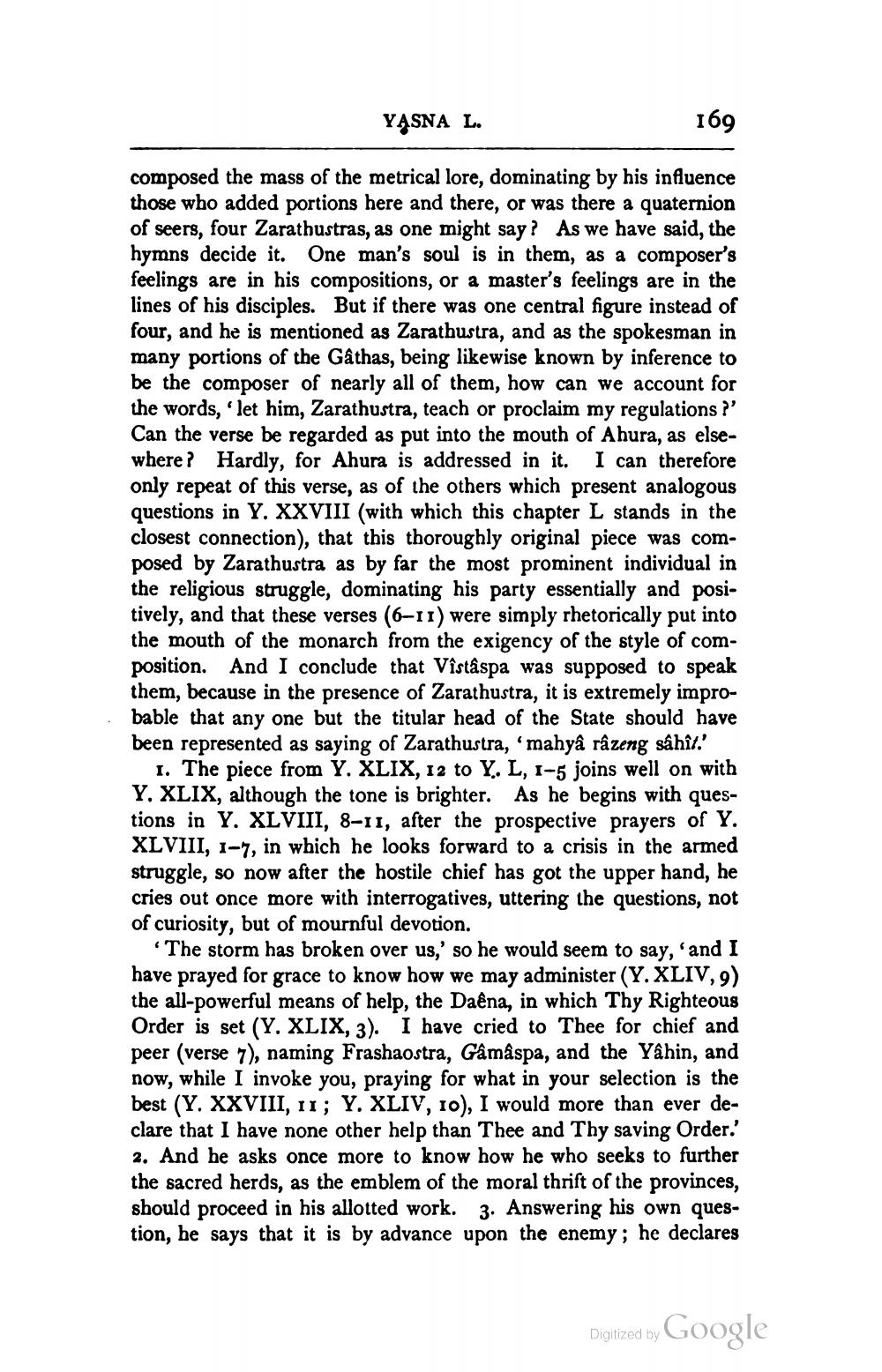________________
YASNA L.
169
composed the mass of the metrical lore, dominating by his influence those who added portions here and there, or was there a quaternion of seers, four Zarathustras, as one might say? As we have said, the hymns decide it. One man's soul is in them, as a composer's feelings are in his compositions, or a master's feelings are in the lines of his disciples. But if there was one central figure instead of four, and he is mentioned as Zarathustra, and as the spokesman in many portions of the Gathas, being likewise known by inference to be the composer of nearly all of them, how can we account for the words, 'let him, Zarathustra, teach or proclaim my regulations ?' Can the verse be regarded as put into the mouth of Ahura, as elsewhere? Hardly, for Ahura is addressed in it. I can therefore only repeat of this verse, as of the others which present analogous questions in Y. XXVIII (with which this chapter L stands in the closest connection), that this thoroughly original piece was composed by Zarathustra as by far the most prominent individual in the religious struggle, dominating his party essentially and positively, and that these verses (6–11) were simply rhetorically put into the mouth of the monarch from the exigency of the style of com position. And I conclude that Vîstâspa was supposed to speak them, because in the presence of Zarathustra, it is extremely improbable that any one but the titular head of the State should have been represented as saying of Zarathustra, mahyâ râzeng sâhît.'
1. The piece from Y. XLIX, 12 to Y. L, 1-5 joins well on with Y. XLIX, although the tone is brighter. As he begins with questions in Y. XLVIII, 8-11, after the prospective prayers of Y. XLVIII, 1-7, in which he looks forward to a crisis in the armed struggle, so now after the hostile chief has got the upper hand, he cries out once more with interrogatives, uttering the questions, not of curiosity, but of mournful devotion.
The storm has broken over us, so he would seem to say, and I have prayed for grace to know how we may administer (Y.XLIV, 9) the all-powerful means of help, the Daena, in which Thy Righteous Order is set (Y. XLIX, 3). I have cried to Thee for chief and peer (verse 7), naming Frashaostra, Gamaspa, and the Yâhin, and now, while I invoke you, praying for what in your selection is the best (Y. XXVIII, 11; Y. XLIV, 10), I would more than ever declare that I have none other help than Thee and Thy saving Order.' 2. And he asks once more to know how he who seeks to further the sacred herds, as the emblem of the moral thrift of the provinces, should proceed in his allotted work. 3. Answering his own question, he says that it is by advance upon the enemy; he declares
Digitized by
Digitized by Google




